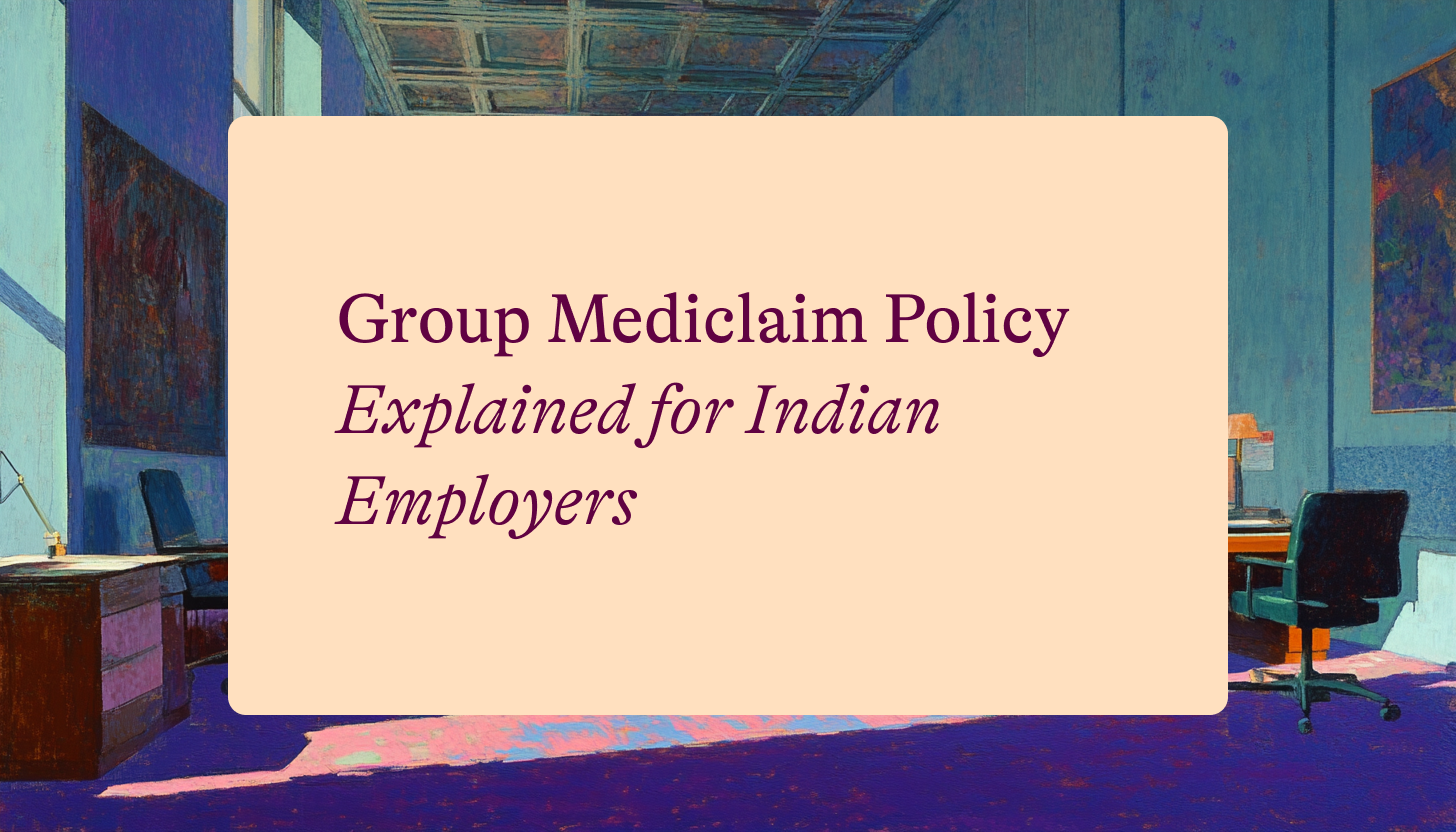Akansha Singh*, a 34-year-old Delhi based Public Relations officer, found herself grappling with a shocking health revelation last year. Following a papsmear, Akansha was found to be positive for a high-risk strain of the Human Papillomavirus, commonly known as HPV. The virus had led to the development of precancerous cells in her cervix, which if left untreated, could progress to cervical cancer in the coming years.
Despite maintaining regular visits to her gynaecologist, Akansha had never undergone a papsmear before. A papsmear or a pap test, short for Papanicolaou test, is a routine screening procedure for cervical cancer that women should undergo starting at the age of 21, until the age of 65.
Akansha attributes her diagnosis to sheer luck, acting on a hunch that something in her body wasn’t quite right when she noticed spotting between her periods.
“After my diagnosis, I spoke to several of my female friends and colleagues, most of them in their early to mid 30s, and I was shocked to learn that none of them have ever had a papsmear in their lives,” says Akansha.
Akansha’s case reveals a significant lack of awareness about gynaecological health among educated women residing in urban Indian cities. In today's era, in spite of the availability of HPV vaccines and affordable and effective methods for early detection and treatment of cervical cancer precancerous lesions, awareness towards cervical cancer and its screening, which includes papsmears and HPV tests, are miniscule in India.
The link between HPV and Cervical Cancer
Cervical cancer is a type of cancer that affects the cervix – the lower part of the uterus – and is a silent killer that affects women all over the world. Despite being a preventable disease, it continues to claim the lives of thousands of women each year. In recent years, the prevalence of cervical cancer has been on the rise in India. In a majority of the cases, cervical cancer is caused by HPV.
HPV is the name of a group of 200 known viruses, and is the most common sexually transmitted infection (STI). Almost all sexually active people will be infected at some point in their lives, usually without symptoms.
Both men and women are susceptible to HPV infections. In women, HPV can lead to cervical, head and neck, vaginal, and anal cancer; while in men, it can lead to penile, head and neck, and rectal or anal cancer.
According to a Lancet study, one in three men worldwide are infected with at least one genital HPV type, and around one in five men are infected with one or more high risk-HPV types.
“The virus is present in the external genitalia of both men and women. A person with HPV can pass the infection to someone even when they have no signs or symptoms. If you are sexually active, you can get HPV even if you have had only one sexual partner,” says Dr Rani Bhat, Head and Senior consultant of the Gynecological Oncology division at Apollo Hospitals, Bengaluru.
Most HPV infections don’t cause cancer, and a robust immune system can clear the virus on its own. But high-risk HPV infections, specifically HPV 16 and 18, that persist can cause cancer.
After breast cancer, cervical cancer is the second most common cancer among women in India, which contributes to one-fifth of the global burden. As per the National Cancer Registry Programme, cervical cancer accounted for 6-29% of all cancers among women in India.
According to a Globocan 2020 report, cervical cancer accounted for 9.4% of all cancers, 123,907 cases and 77,348 deaths in India in 2020. The 5-year relative survival rate of approximately 46% is much lower than that of other Asian countries. This is because cervical cancer is diagnosed at an advanced stage in more than 80% cases, resulting in high death rates.
“Screening for cervical cancer is an important part of routine health care for people who have a cervix. This includes women and transgender men who still have a cervix,” states the World Health Organization (WHO). It also recommends two rounds of HPV testing by the ages 35 and 45 years.
Why it is called a silent killer
Cervical cancer has a long pre-invasive phase that lasts for 10–15 years. This provides a window of opportunity to detect and treat the precancerous stages, as well as early detection of cancers. However, since there are no symptoms and no regular checkups, cervical cancer is diagnosed at an advanced stage in more than 80% cases, resulting in high death rates in India.
“If your immune system is compromised due to factors such as stress, smoking, or other reasons, the virus may persist in your body for an extended period without showing any symptoms. But the virus gradually affects the cervix. These symptoms can show up after almost a decade,” says Dr Bhat, suggesting why vaccination is so crucial in preventing HPV and cervical cancer.
“Although the HPV vaccine cannot clear the virus, it can effectively prevent future infections. Vaccines have been shown to provide cross-protection against other types of HPV viruses as well,” says Dr Bhat.
There are three types of HPV vaccine – Cervarix, Gardasil and Gardasil 9, which The vaccine can be administered to both boys and girls from the age of nine and above, up to the age of 45.
Sexual health and taboo
Sexual health is still a taboo topic in India. Apart from lack of awareness about cervical cancer screening options and vaccination, there is also stigma associated with sexual health, which prevents women from actively addressing their healthcare needs. In many cases, unmarried women are often hesitant towards receiving the HPV vaccine, primarily stemming from its link to STIs and the perception that it implies engagement in premarital sex.
However, there’s a silver lining. According to Dr Smitha Avula, an obstetrician-gynecologist at Proactive For Her, a Bengaluru based women's healthtech startup, urban women are becoming aware of cervical cancer, thanks to social media buzz created around HPV vaccination.
“The reluctance for vaccination is definitely coming down as more and more women are coming forward and it is gaining popularity among friend circles,” says Dr Avula. “We in fact have men volunteering for vaccinations, which is commendable.”
Doctor’s advice
Dr Bhat advises her patients to be vigilant of any abnormal symptoms such as bleeding after sexual intercourse, bleeding between periods, and unusual-smelling white discharge, as these could indicate a health issue. “One should never ignore these symptoms,” she says.
She also recommends getting pap smears and HPV DNA tests, which is a combination of a pap smear and an HPV test, once in 3-5 years.
The role of workplaces
Workplaces in India can play a pivotal role in safeguarding their female employees from HPV-related illnesses through vaccination initiatives and educational programmes.
Dr Bhat says there is a need to organise more health awareness programmes to address the stigma associated with discussing sexual health and encourage women to prioritise their gynaecological health.
Echoing the same, Dr Avula suggests workplaces should make it more feasible for women for vaccination and STI screening by establishing tie ups with medical organisations or have empanelment of visiting doctors, especially gynaecologists, so as to make it a norm across all employees to meet the gynaecologist.
“Organising vaccination drives and pap smear/ HPV screening can shoulder some responsibility on the corporate work spaces than conventional healthcare systems,” she says.
“Forewarned is forearmed - so we need to prepare our women to protect themselves from protective measures like vaccination and prompt screening,” adds Dr Avula.
.avif)








.avif)















